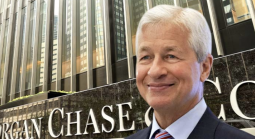Wynn Case Raises Questions About Responsibility to Investors
NEW YORK (Associated Press) – The scandal that forced the resignation of Steve Wynn as chairman and CEO of the casino and resorts company bearing his name is raising questions about the obligation of corporations to disclose sexual misconduct allegations to their investors – an issue complicated by a web of workplace and legal practices that companies have used to keep such situations under wraps.
The billionaire casino mogul’s resignation came less than two weeks after the Wall Street Journal reported that a number of women said Wynn harassed or assaulted them and that one case led to a $7.5 million settlement.
Wynn now faces investigations by gambling regulators in Nevada and Massachusetts, where the company is building a roughly $2.4 billion casino just outside Boston. Regulators in Macau, the Chinese enclave where the company operates two casinos, are also inquiring about the allegations.
Wynn has vehemently denied the report’s allegations, denouncing in his resignation statement an environment “in which a rush to judgment takes precedence over everything else, including the facts.” In accepting Wynn’s resignation, the company’s board of directors made clear it had done so “reluctantly.”
The scandal has cost shareholders money, leaving the company exposed to complaints that investors should have been informed about the allegations against a leader whose image and reputation were tightly tied to the brand. The company’s stock rallied Wednesday after Wynn resigned but has fallen almost 12 percent since the Journal’s Jan. 26 report.
Wynn remains the largest shareholder of his company and his signature is its logo. Additionally, in its annual filings with the Securities Exchange Commission, Wynn Resorts said the mogul’s “efforts, skills and reputation” are a large factor in the company’s ability to compete, and its business could suffer if he were to leave or lose his ability to focus on the company.
At least one shareholder raised those factors in a lawsuit filed Wednesday in a Nevada district court. The shareholder, Norfolk County Retirement, accused the company’s board of directors of breaching its fiduciary duties by “turning a blind eye and disregarding a sustained pattern of sexual harassment and egregious misconduct by Mr. Wynn.”















